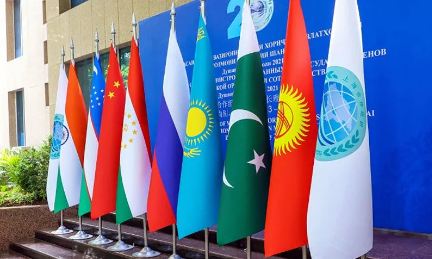ISLAMABAD, OCT 14 /DNA/ – Multilateral collaboration through regional organizations provides a vital and stable framework for enhancing regional cooperation and connectivity. These organizations, such as the Shanghai Cooperation Organization (SCO), provide the foundation for effective partnerships, playing a crucial role in fostering peace, security, and stable economic growth.
Coinciding with the 23rd Council of Heads of Government meeting of the SCO in Islamabad, the Institute of Policy Studies has published ‘Bridging Horizons: Unraveling the Enigma of Connectivity between Pakistan and Central Asia’. Authored by Dr. Faisal Javaid, Dr. Uzma Siraj, and Polish scholar Prof. Dr. Arkadiusz Zukowski, this study offers a comprehensive analysis of the historical, geopolitical, and economic dimensions that connect Pakistan and other SCO member states, particularly the Central Asian nations.
As Pakistan and other regional countries deepen their relationships, the book emphasizes the strategic importance of connectivity in achieving regional prosperity, echoing the legacy of the ancient Silk Road and modern infrastructure projects like the Belt and Road Initiative (BRI).
Since joining the SCO in 2017, Pakistan has actively contributed to regional initiatives promoting security, stability, and economic development. Bridging Horizons explores how the SCO’s mission provides a crucial platform for collaboration, essential for fostering regional connectivity and economic growth. Through its various initiatives, the organization aims to enhance infrastructure, energy cooperation, and financial integration across member states. The study also highlights the alignment of SCO goals with key projects such as the China-Pakistan Economic Corridor (CPEC), which positions Pakistan as a vital transit hub linking Central Asia to South Asia and the Middle East.
While the book highlights numerous opportunities for economic collaboration, including energy projects like the TAPI gas pipeline and CASA-1000, it also addresses critical challenges. Infrastructure deficits, vast distances, difficult terrain, and geopolitical tensions often hinder regional cooperation. The authors argue that the SCO should adopt an integrated approach to overcoming these barriers by engaging external partners, international organizations, and the private sector to boost expertise and resources.
The book offers actionable recommendations for enhancing connectivity between Pakistan and regional countries, in alignment with the SCO’s long-term goals. Key suggestions include leveraging Pakistan strategic location as a transit state, optimizing the functionality of Gwadar port, breaking down trade barriers, and promoting free trade agreements. Additional recommendations focus on establishing direct air links, improving transport infrastructure, harmonizing cross-border regulations, and facilitating people-to-people contacts through liberalized visa policies.
The study also examines the responses of global and regional powers – the USA, China, Russia, and India – to the evolving dynamics in Central Asia. These actors, alongside the European Union, Türkiye, and Afghanistan, shape the region’s future connectivity and cooperation.
This publication provides timely insights into the challenges and opportunities of fostering regional cooperation. It is an essential resource for understanding the potential of a more interconnected and prosperous future between Pakistan, Central Asia, and other SCO member states.

















